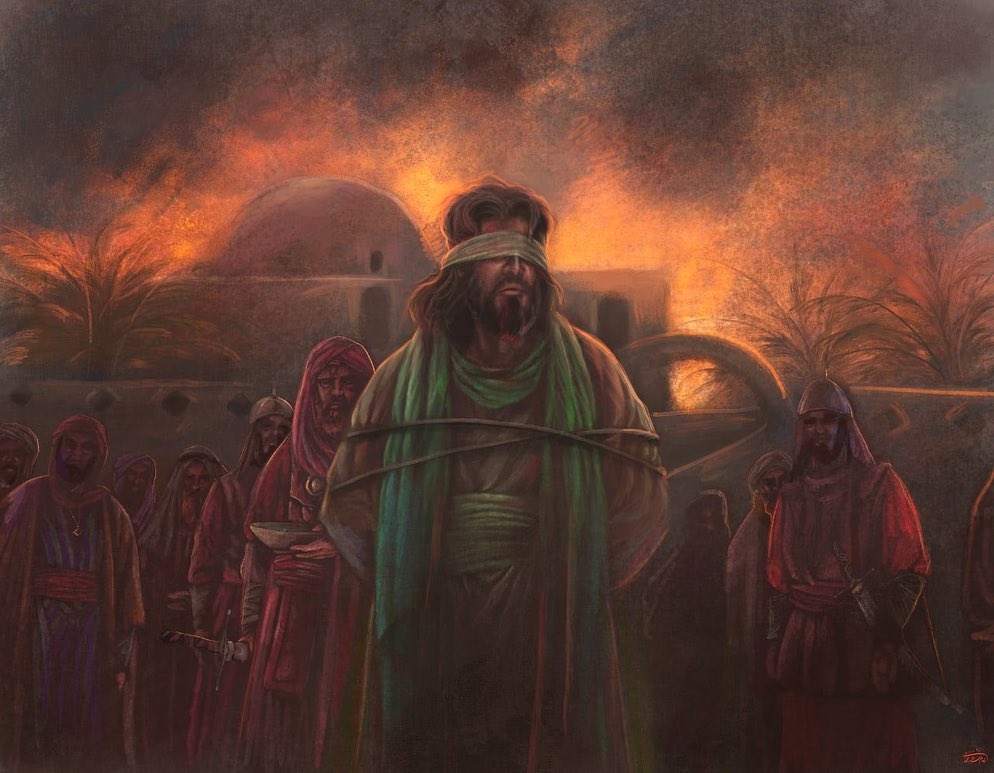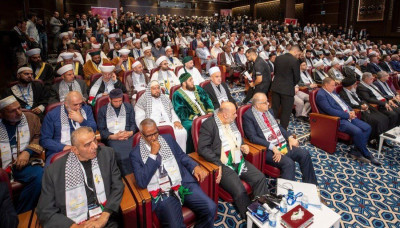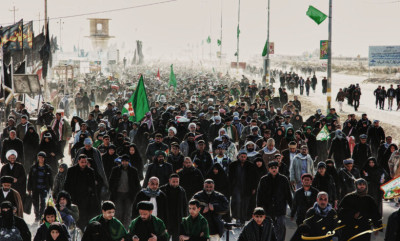Muslim ibn Aqeel was born into the noble Hashimite family, the same family as the Prophet Muhammad (peace be upon him and his family). He was the son of Aqeel ibn Abi Talib, the brother of Imam Ali (peace be upon him), making him the cousin of both Imam Hasan and Imam Hussain (peace be upon them). From his youth, Muslim was known for his courage, strong faith, and quiet dignity.
Raised in the household of Imam Ali, he was deeply shaped by the values of justice, loyalty, and sacrifice. In a time when the Muslim world was rapidly changing, Muslim grew into a man trusted by the Imams, not merely because of his bloodline, but because of his character.
Loyalty and the Mission to Kufa
In 60 AH, when letters began pouring into Medina from the people of Kufa inviting Imam Hussain to rise against the corrupt rule of Yazid ibn Muawiyah, Muslim ibn Aqeel was chosen to go on behalf of the Imam. His mission was delicate: to assess the sincerity of the Kufans and to prepare for the Imam’s arrival if the support was genuine.
Upon reaching Kufa, Muslim was met with great enthusiasm. Thousands pledged allegiance to Hussain through him. For a brief moment, it seemed the city was ready to rise. But the tides shifted when Yazid appointed Ubayd Allah ibn Ziyad as governor, a man known for cruelty and cunning. Fear began to spread. The same people who welcomed Muslim abandoned him.
In just a few days, he went from leading congregational prayers to wandering the streets alone.
The Tragedy in Kufa
Muslim was eventually betrayed and captured after a valiant stand against dozens of soldiers. Even in chains, he carried himself with honor. Before his execution, he managed to send a final letter to Imam Hussain:
“The hearts of the people are with you, but their swords are against you.”
It was a warning, clear and painful.
On the 9th of Dhu al-Hijjah, just a day before Eid, Muslim ibn Aqeel was taken to the roof of the governor’s palace in Kufa. He was thrown to the ground and then beheaded, the first blood to be shed in the movement that would lead to Karbala.
He died without his family. Without an army. Without a grave that was honored.
But he died in truth.
A Martyr Whose Silence Spoke
Though Muslim ibn Aqeel did not live to see the plains of Karbala, he remains deeply woven into its story. His martyrdom was not merely the beginning, it was the first proof of betrayal, the first sacrifice made for Imam Hussain, and the first lesson that standing for justice often means standing alone.
Captured and killed in a city that once welcomed him, Muslim’s story reminds the world that public opinion is not loyalty, and that true faith shows itself in the hardest of moments.
Today, his shrine in Kufa is visited by pilgrims who remember him not only as the envoy of Husayn, but as the first voice to echo Karbala’s cry: Never bow to injustice.
Muslim ibn Aqeel (peace be upon him) was more than a messenger. He was a martyr before the battle began. In him, we see a man who embodied the meaning of loyalty, even when left entirely alone.
His life teaches that betrayal cannot break the truth, and that sometimes, the first step in a revolution is taken in silence and in chains. He was the candle lit before Ashura. The first drop of blood on the road to dignity.
Muslim ibn Aqeel stands as a symbol of trust, sacrifice, and the cost of upholding truth, even when no one stands beside you.















اترك تعليق